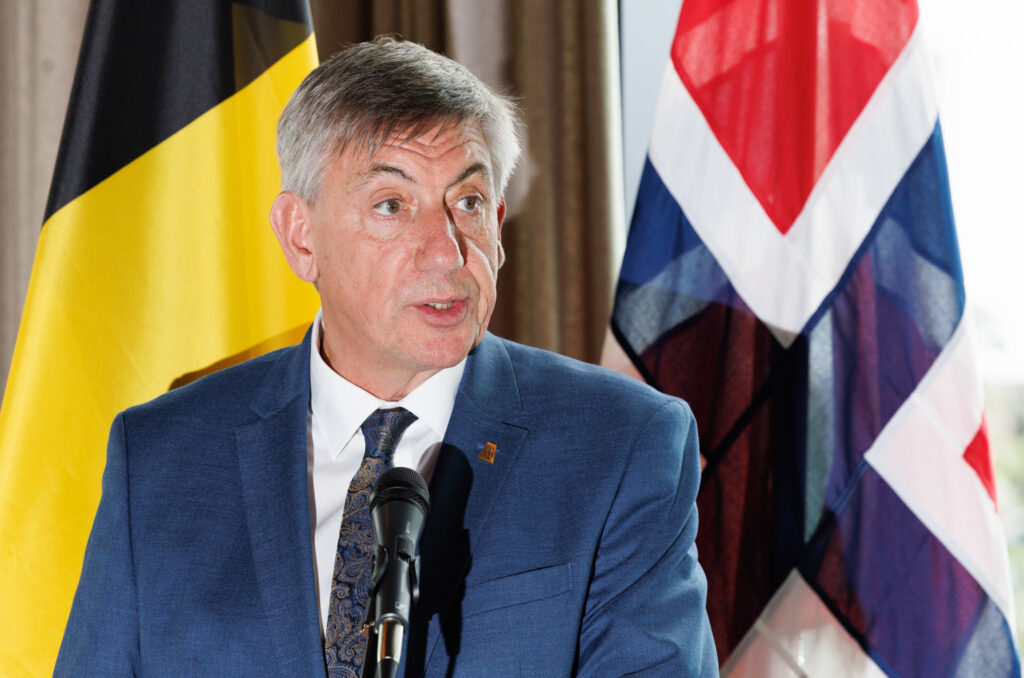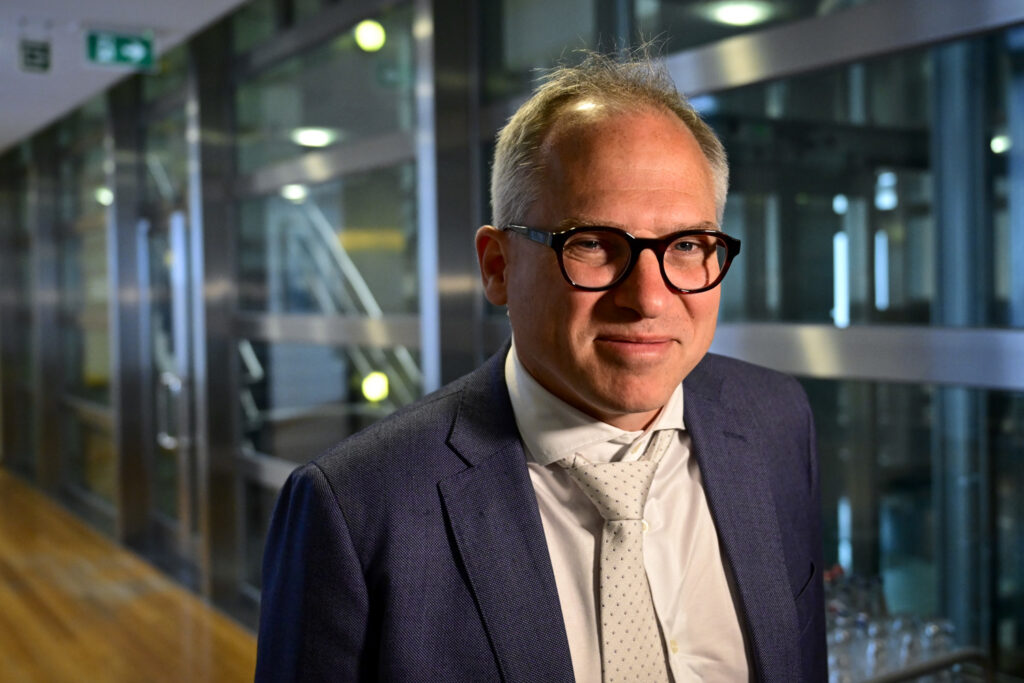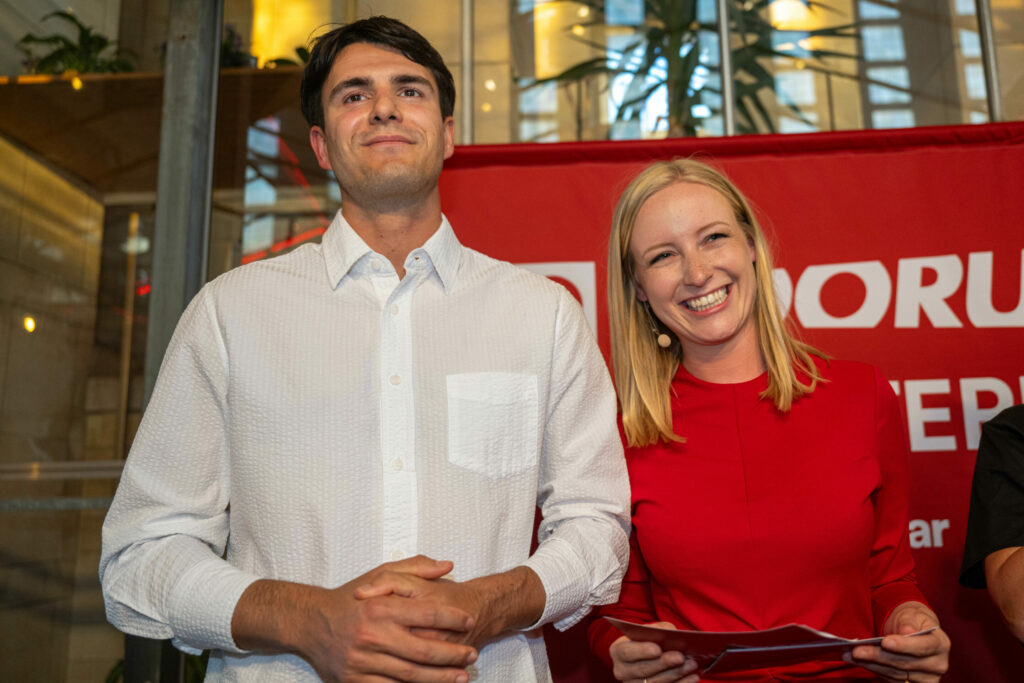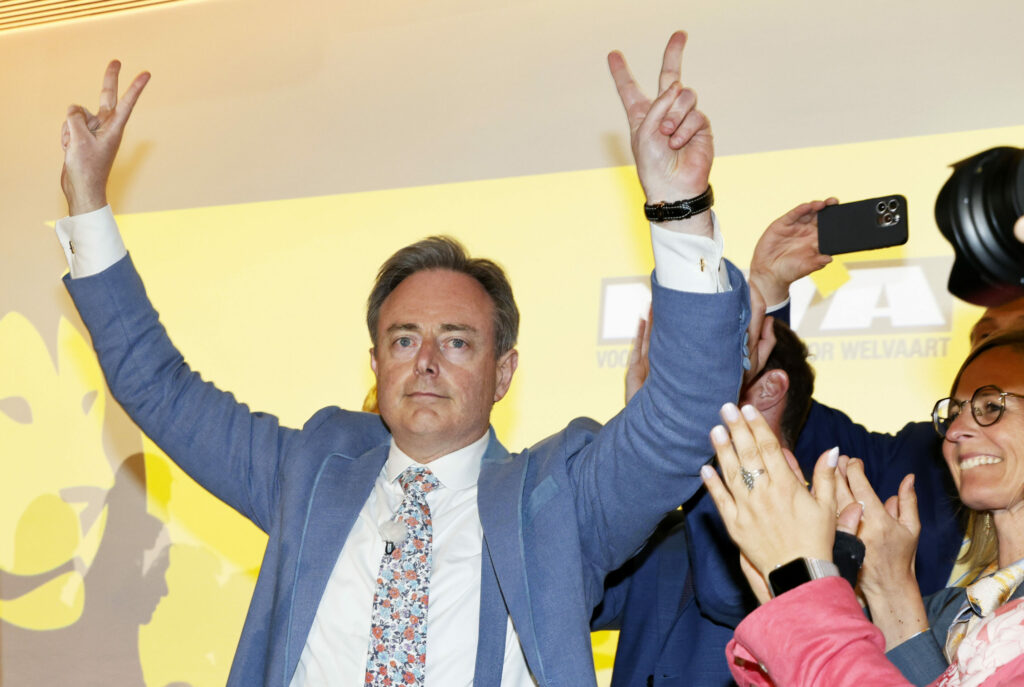Just over a week after the Belgian elections, the Flemish rightwing N-VA party moved to solidify its victory, taking important steps to form both the Federal and the Flemish Government on Wednesday.
As the party gained the most votes at the federal level as well as in the Flemish regional elections, leader Bart De Wever was appointed as the person to lead the negotiations (the so-called "informator") for both governments.
In that role, he had conversations with all the party leaders with a view to forming the two governments. De Wever's aim is to form a coalition between rightwing N-VA, centrist CD&V and socialist Vooruit on the Flemish level. On the Francophone side of the country, liberal MR and centrist Les Engagés already agreed to form the Walloon Government together.
Federally, the expectation is that De Wever will work towards a so-called "Arizona coalition," which would be a reflection of the regional government: N-VA, Vooruit and CD&V on the Flemish side, and MR and Les Engagés on the French-speaking side.

Flemish Minister-President Jan Jambon (N-VA). Credit: Belga
Now, De Wever has asked outgoing Flemish Minister-President Jan Jambon to "take the lead with him on future negotiations for the Federal Government" with him – an assignment that Jambon has accepted, N-VA said in a press release.
The party underlined Jambon's experience as Deputy Prime Minister in the Federal Government headed by Charles Michel (2014-2018).
At 15:00 on Wednesday, De Wever is expected at the Palace to discuss the state of affairs with the King. After that, the next steps in the formation process are expected to become clearer.
What about Flanders?
To form the Flemish Government, De Wever "successfully completed" the information gathering phase, N-VA announced in a press release after the approval of CD&V and Vooruit to start negotiations.
"N-VA, Vooruit and CD&V gave their agreement to start the formation process and to negotiate in depth towards a new Flemish coalition agreement," the statement read.
Now, De Wever is passing the baton to current Flemish Minister of Budget, Finance and Housing Matthias Diependaele. He is now the Flemish "formator," meaning he is in charge of the government formation process in Flanders.
This also makes Diependaele the biggest contender to become the new Flemish Minister-President, succeeding Jambon: historically, the appointed formator has a very good chance of becoming the head of the government he was in charge of forming.

N-VA's Matthias Diependaele. Credit: Belga
Diependaele will get the help of other fellow party members and Flemish Ministers Zuhal Demir and Ben Weyts, as well as MP Annick De Ridder, N-VA said in a press release. The party also said that this selection of people at the negotiation table "does not necessarily mean that they will be given ministerial posts in the future government."
While the "starting note" drawn up by De Wever as a basis to start forming formation talks still needs adjustments, it forms a sufficient basis for the negotiations, said N-VA.
"I look forward to forging a strong Flemish coalition agreement with my party N-VA, Vooruit and CD&V in the coming weeks," Diependaele said in an initial response on social media.
Ik aanvaard de opdracht om te starten als formateur. Ik kijk ernaar uit de komende weken een sterk Vlaams regeerakkoord te smeden met mijn partij @de_NVA , @vooruit_nu en @cdenv.
— Matthias Diependaele (@MDiependaele) June 19, 2024
The news followed Vooruit's announcement earlier on Wednesday that it was "ready to start negotiations" with rightwing N-VA and centrist CD&V.
After reading the so-called "starting note" that Vooruit leader Melissa Depraetere needed from De Wever to clarify that this Flemish Government would be different from the previous one, Depraetere read it as "a clear signal" that the three parties are "prepared to negotiate in the coming months for a warmer and more social Flanders."
However, she stressed that De Wever's note still contains a number of things that are unacceptable to Vooruit.
He presented his starting note to party leaders Sammy Mahdi (CD&V) and Depraetere separately on Tuesday afternoon. After the conversation, Mahdi made it clear that he was up for forming a government together – even if "a number of corrections" were "necessary" for his party.
"For us, there are a number of fundamental things missing and there are a few elements that we look at fundamentally differently. This will have to be further clarified during the negotiations in the coming weeks," he said.

Vooruit's Conner Rousseau (left) and Vooruit's leader Melissa Depraetere at the party's post-election meeting. Credit: Belga/ Jonas Roosens
On Wednesday, Depraetere said the voters voted "for more social policy" in Flanders. "We asked De Wever to give a clear signal that the current Flemish governing parties are willing to adjust their policies fundamentally. And in the talks with him, I gained the confidence that this willingness is there."
According to her, De Wever's starting note contains "clear openings to fundamentally adjust Flemish policy in areas such as education, care, childcare, affordable housing, mobility and climate." At the same time, it also contains passages that "can never be included in a coalition agreement" for her party, as well as "insufficient concessions" in certain areas.
While De Wever's note is "not an advance on the coalition agreement," she underlined that it is "a clear signal" that N-VA are willing to negotiate "a more social" Flanders. "Only if we see this willingness reflected in the coalition agreement at the end of the negotiations will Vooruit enter the Flemish Government."
As the Flemish Government negotiations are now effectively starting, Vooruit will send frontrunner candidate and former party leader Conner Rousseau as well as outgoing Federal Development Cooperation Minister Caroline Gennez to accompany Depraetere to the negotiating table.

